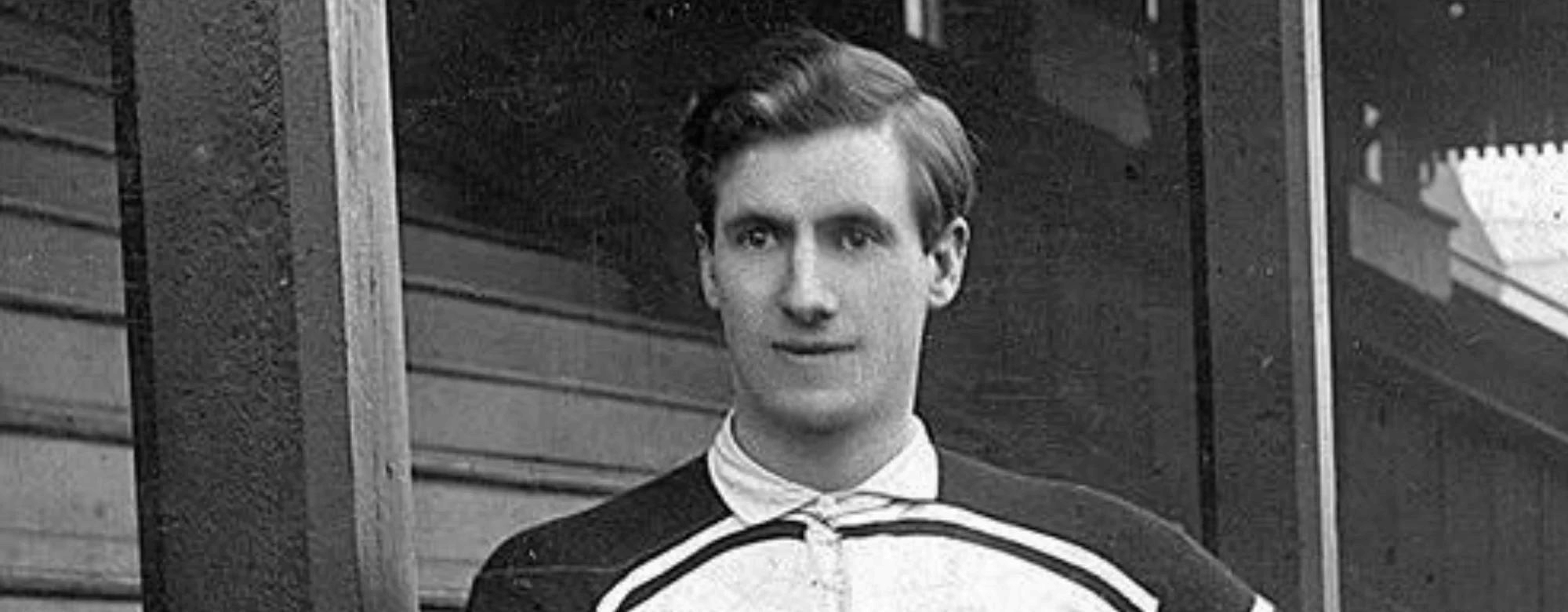On this Remembrance Sunday, we look back on the life of Hull FC hero Jack Harrison VC MC, who sacrificed his own life to save those of his platoon during a battle in Oppy Wood in 1917.
John ‘Jack’ Harrison was born on this day, 12 November, in 1890 to parents John & Charlotte in East Hull and known to his friends as ‘Jack’. Jack was educated at Craven Street School where he was reported as being a scholar with him excelling at sports. He continued his education following in his elder sister Beatrice’s footsteps going to York St. John Training College, studying to become a teacher.
Jack continued his sporting life in athletics and played rugby with the College until he was persuaded in his last year to join York (NU) playing around three matches to the end of the season. He returned to Hull in September 1912 where he had been recruited to play for Hull FC for the 1912/13 season. On his return, he also secured a teaching position with Lime Street School.
His Hull FC rugby career took off playing against his old side of York on 5 September with Hull FC winning 9-3 at the Boulevard. Jack soon proved himself becoming a formidable member of the team playing alongside another new signing, William ‘Billy’ Batten, later in 1913.
They were soon to become a formidable team with Jack and Billy playing at wing three-quarter. Jack scored the winning Hull try in the Northern Union Challenge Cup victory over Wakefield Trinity at Halifax on 18th April 1914 (Hull FC 6 – Wakefield 0). During the following 1914/15 season he scored a record 52 tries, a record that still stands to this day! In total he scored 106 tries in 116 matches for Hull.
On 4th August 1914, Great Britain declared War on Germany only a month before Jack married his lifelong friend Lillian Ellis on 1st September 1914. On 16th December 1914, the direct attack on British soil brought ‘Total War’ to Britain with the bombardment of Scarborough & Whitby by the German Navy.
Harrison was a part of the Challenge Cup-winning team in 1913/14
Harrison was a part of the Challenge Cup-winning team in 1913/14
On 6th June 1915, the first Zeppelin raid over Hull saw a huge amount of destruction with many casualties. Jack’s son ‘Jackie’ was born on the 29th June 1915 at 75 Wharncliffe Street Hull. Incidentally, during WWII, his son became a Captain in the Duke of Wellington’s Regiment and was sadly killed on 1st June at Dunkirk in 1940.
On 4 November 1915 he had signed up as a cadet with the Inns of Court Officer Training Corps. Jack returned to Hull FC, playing his final game against Broughton Rangers on Boxing Day before finally leaving for his training as a cadet.
Jack was commissioned as Temporary 2nd Lieutenant and assigned to the 11th Battalion East Yorkshire Regiment (Hull Tradesmen) 6 Platoon on the 4th August 1916. The 11th EYR had already arrived on the Somme in March 1916 following a brief visit to the Suez and Egypt from December 1915, and when Jack joined the regiment in September 1916, they were enjoying a break from the front in a supporting role behind the lines near Hébuterne, south west of Arras.
The regiment was back on the front line again and on the 25th February 1917, Jack led a patrol into no-man’s land and for his action, he was awarded the Military Cross (MC). He had managed to bring back a prisoner with him.
March and April was a busy period with the beginning of the Arras Offensive. The British troops were experiencing heavy casualties. The Third Battle of the Scarpe begins with orders for the capture of Oppy Wood and is set for dawn on the 3 May 1917.
At the last minute the raid was brought forward to make use of night cover which had been dark, misty and smoky from the shelling and gunfire. This turned out to be the biggest mistake of all as the early morning turned out to be clear and the men were silhouetted against the moon. The attack failed dramatically with exceptional heavy losses.
It was the actions of Jack during this offensive that led to his Victoria Cross. Ordered to attack a wood near Oppy with the rest of his brigade, his platoon became pinned down by machine gun fire. It was his actions that led to silencing the machine gun, an action that saved many lives. His body was never found.















